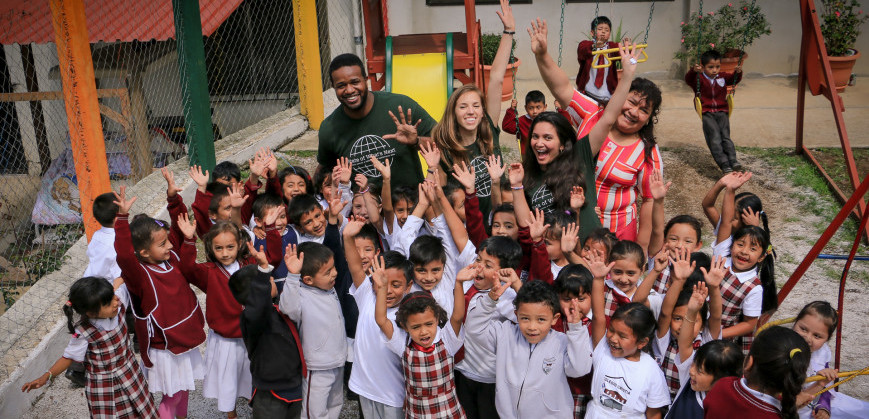
A team of students from the Global Social and Sustainable Enterprise MBA program is working with families in Guatemala to improve parenting skills through smartphone technology.
Colorado State University’s Global Social and Sustainable Enterprise MBA ranks No. 3 among social entrepreneurship graduate programs, according to recently released listings from Net Impact.
The expanded version of the ninth annual Business as UNusual guide places the College of Business program among the top graduate programs with a focus on corporate responsibility and sustainability topics.
“The GSSE program is a world-class program centered on making a difference on a global scale,” said Beth Walker, dean of the CSU College of Business. “It is a defining program for our college, and our faculty, staff and students can be justifiably proud of this recognition as a leader in the use of business methods and thinking to address some of the most pressing challenges of the world, today and in the future.”
The new ranking in Social Entrepreneurship puts CSU in the first five globally, with HULT International Business School in San Francisco, Bainbridge Graduate Institute, Duke University and the University of Michigan. The College of Business was also ranked fifth – tied with Duke – for its graduate programs that make a social impact and 21st for environmental sustainability programs. CSU is the only Colorado college or university to appear on the Business as Unusual lists.
“In the GSSE MBA, every course is specifically designed to emphasize a social entrepreneurial approach, base-of-the-pyramid markets, and for-profit and nonprofit sectors and solutions,” according to the Business as UNusual report.
Team-based ventures
A crucial component of the GSSE experience is the team-based sustainable venture, which includes 8 to 12 weeks of summer fieldwork, typically in developing countries. GSSE students work to develop enterprises that address real-world problems, and form substantive partnerships with other sustainability programs on campus.
Earlier this year, CSU secured the only Platinum rating from the Sustainability Tracking, Assessment and Reporting System (STARS), a comprehensive survey of sustainable practices, research and academics at colleges and universities around the world. Courses in all eight of the University’s colleges address sustainability, and a number of sustainability-focused student groups are active on campus.
“The purpose of Net Impact is to leverage the power of business for social and environmental good,” said Carmelo Mannino, MBA student and outgoing president of the CSU chapter of Net Impact, who helped compile the Business as UNusual report. “The GSSE MBA empowers us to live this purpose and to get hands-on experience in a risk-free environment. The program proves that corporate profit and social causes are not mutually exclusive. It’s not only about considering shareholders, but also every stakeholder.”
Such focus on social and environmental issues are critical to the future of the global economy. Other findings from the Net Impact study showed that 93 percent of more than 3,000 graduate students surveyed say social/environmental issues are important to a business’ long-term success, and 82 percent think companies are integrating sustainability into care business strategies and practices better than five years ago.
For more information about the GSSE program at the Colorado State University College of Business, go to thegoodMBA.com
About Net Impact
Net Impact is a leading nonprofit that empowers a new generation to use their careers to drive transformational change in the workplace and the world. At the heart of the Net Impact community are over 50,000 student and professional leaders from more than 300 volunteer-led chapters across the globe working for a sustainable future.
The information in Business as UNusual: The Student Guide to Graduate Programs 2014 was compiled from two sources: a written questionnaire completed by Net Impact chapter leaders from participating programs and an online survey completed by more than 3,000 students.